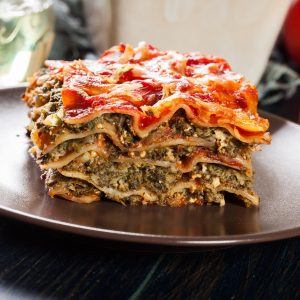Who Does What In a Restaurant Kitchen?
Just as the teaching profession has a variety of subjects to cover and there are more types of lawyers than most of us can count, becoming a chef comes with different choices.
You can dream of becoming an executive chef, the mastermind behind the kitchen, but the path to get there is filled with jobs like patissier, sous chef, and even saucier—many of which are viable, well-paying careers in their own right.
Executive Chef (Chef de Cuisine)
The executive chef is the boss of the kitchen. There is usually only one per restaurant (or chain), so the competition to get to the top of the field is fierce, and it can take years of formal training at a culinary school as well as decades of experience to land the job of your dreams.
As executive chef, you rarely worry about the details of food preparation. Instead, you act as the overseer, keeping the kitchen running smoothly and devising new dishes.
Sous Chef
The sous chef is the executive chef’s right hand, and there can be more than one. These professionals do a lot more of the micromanaging in the kitchen, seeing to the details of each dish and working in the trenches to make sure everything is properly prepared.
Pastry Chef (Patissier)
In most cases, becoming a patissier requires a different type of culinary training, usually at a baking school or in a baking program rather than a straightforward culinary school. The bulk of this work is centered around pastries, bread, and desserts, and depending on where you work, you could become the equivalent of an executive chef.
Station Chef (Chef de Partie)
The station chef is usually in charge of just one part of the kitchen: for example, the soups, the salads, or the grill. They work under the sous chef or executive chef to make sure all food prepared and put out of their station is of the highest level for quality and appearance.
Saucier
The saucier’s sole responsibility is to prepare the sauces. Although it might not sound like much, certain types of cuisine (particularly French) are all about the sauce.
Fish Cook (Poissonier)
The poissonier works with seafood, both in preparation and in cooking.
Vegetable Cook (Entremetier)
The entremetier can take on a variety of roles, depending on the type of cuisine. For the most part, he or she deals in soups, vegetables, potatoes and rice, and egg dishes
Meat Cook (Rotisseur)
The rotisseur is the mastermind of meat. From roasting and braising to broiling and grilling, the rotisseur does it all. In many cases, the tasks will overlap with those of the saucier, especially when it comes to gravies.
Fry Cook
When a restaurant heavily depends on a fryer (for French fries and many Southern delicacies), a fry cook may be employed to cover the station.
Pantry Chef (Gard Manger)
The pantry chef is in charge of all cold items, from salad and hors d’oevres to cold sauces and dressings. One big aspect of this job is making the food appear presentable.
Line Cook (Commis)
The line cook is typically an entry-level position in which you work alongside the rest of the kitchen doing what needs to be done. You may cut vegetables one day and plate dishes on another. It is a fast-paced position with plenty of room for upward mobility.
Expediter
The expediter is the bridge between the kitchen and the waitstaff. These individuals are the last line of food preparation before the plate reaches the table, and are responsible for delivering the plate either via their own hands or that of the waiter.
This position is often taken over by the executive chef him or herself, especially when it’s vital to ensure that the dish is perfect before it goes out.
No matter where you start out and what your specialty, there is a place for you in the culinary world. And with the right training and dedication, you could be just a few years away from an upper-level position where respect and better pay await your command.








24 Responses
what is difrent between commis and cook please describe it im confused
Hi Rishi, according to HCareers, “The primary objective of the commis chef is to learn how to work in every area of the kitchen. In order to accomplish this, a commis chef rotates throughout the kitchen, spending six months or so at one kitchen station before moving on to a different one.”
What educational requirements are needed if you’re going to take culinary arts in college?
Karen, it really depends on the school. Each has their own requirements but from what I’ve seen, most require a high school education at the minimum.
What is the meaning of commis 1,2 and 3?
Hi this the chef’s entry level positions.
Commi 3 means a fresher chef.and he or she will have enough knowledge by rotating in the all kitchen.commi2 is more senior than commi 3.
Commi 1 is next to chef de partie or station chef .
Hi, this site was very informational but I have a question. I’s their more things or responsibilities of a Patissier? Also what do I have to do to meet the requirements to be one?
this is a great Article i loved this you did the best
why are the chefs important?
Why are certified mechanics important? It’s a recognized level of expertise and knowledge to perform a role in a business. And remember, Chef literally means Chief. You will be expected to not only understand and demonstrate proficiency in the technicalities of your area of specialization, but also skill in management of subordinate staff, business management, and perhaps even supply chain management.
What is the name of a chef that cooks pasta?
Kelsey, I may be wrong, but I don’t think there is a specific name given to the “line cook” in charge of pasta. A line cook or station chef is what you call cooks in charge of a particular area of production but I have not found a name for someone responsible for just pasta.
Can a chef who went to a culinary school in africa work as a chef in america? And if yes are there any requirements?
There’s an A and B part to the answer to this. The first part assumes that you can legally work in America. The second part is “maybe”. I will depend upon how well the school or program is known outside of Africa, and do expect to be tested to confirm you know your stuff. That would be applicable to anyone coming from anywhere. he better known your program is, he better your chances of it being useful in a CV.
I think your employment will depend on your speciality, you will be tested. This should be the basic requirement.
Hi, my grandson who is now 18 has just finished his training as an apprentice chef in a hotel near his home, with day release at college 1 day a week and passed all his exams. The hotel has gone through a couple of head chefs, and have in my opinion abused my g/sons position as trainee. He has been left alone on many occasions to cook for customers and parties etc.. and just has a pay rise to £5?. Doing more than 10hrs a day in some cases. As such he is now looking to move on to a decent employer within the industry, can you advise which way and how he can further his career please. Having put his CV on a website and forwarded same to hotels within the Manchester area. Thank you X X
Like many careers, when you start out you do a lot of hard work for low pay. As you gain experience, you use that experience to apply for more advanced positions in other kitchens. The opportunities for advancement may exist in your place of employment, but more typically you move around as that provides more options as well as broadens your experience profile; as all kitchens and operations have differences. The more you learn, the more you earn. The food industry can be brutal, and not everyone is suited for it. If your grandson has been left on his own to prepare for a large event, that’s an indication of trust, as well as a test of competency. It’s not abuse, and if he feels he can’t handle the pressure, then perhaps this isn’t an ideal career path for him. Tell him to tough it out, and keep looking for opportunities for advancement. There is no fast track. You have to work for it; but if his heart is in it, he’ll be successful. It does get better as you progress.
If I cook in various establishments for 40 years, am I a chef?
Chef means chiuef. If they call you chef, then that’s what you are. Otherwise, its wisest to call yourself a cook. After all, do you chef or cook? I cook, and I’ve been doing this for 40 years myself. I’ve been called chef once, by a customer.
Is there a name for chef that base on continental dishes only?
Don’t forget the roundsman! He does everything and goes where needed.
what is important to be a pastry chef . i an so confused with where to start and what to do i am still in my school but i am so confused can you give me like where should i focus in my studies and in other things to be a proper chef and which school is good to learn pastry chef stuff ?
It’s interesting to know that there are chefs that are specifically trained to prepare seafood properly. My grandfather is considering to hire a personal chef since his hands are too weak and shaky nowadays that he couldn’t cook his own food. Since he likes eating fish as fresh as possible, a personal chef with a background on seafood would surely be perfect for him.
It’s so interesting, have been in an industry but i have not known many things here now i see